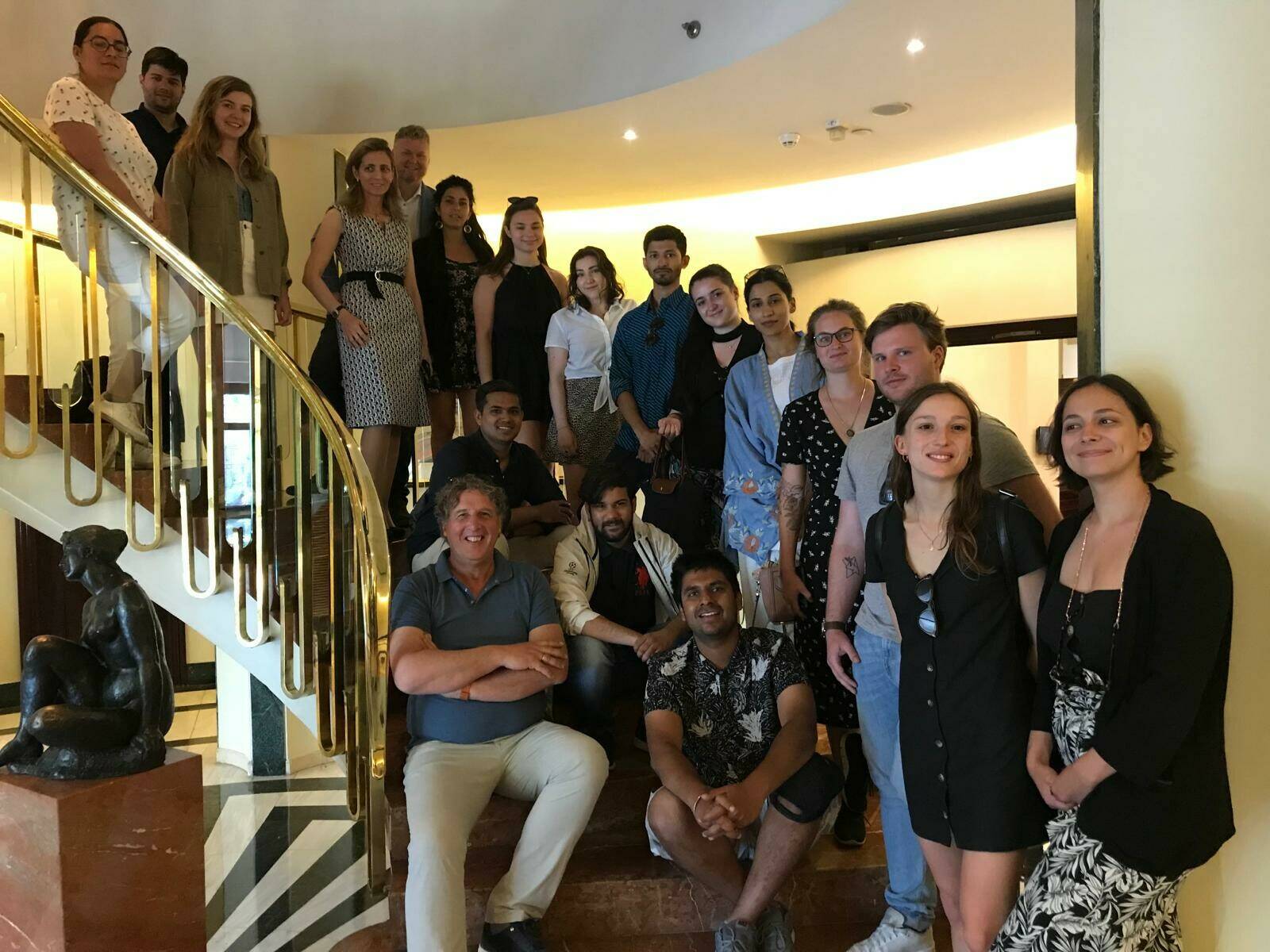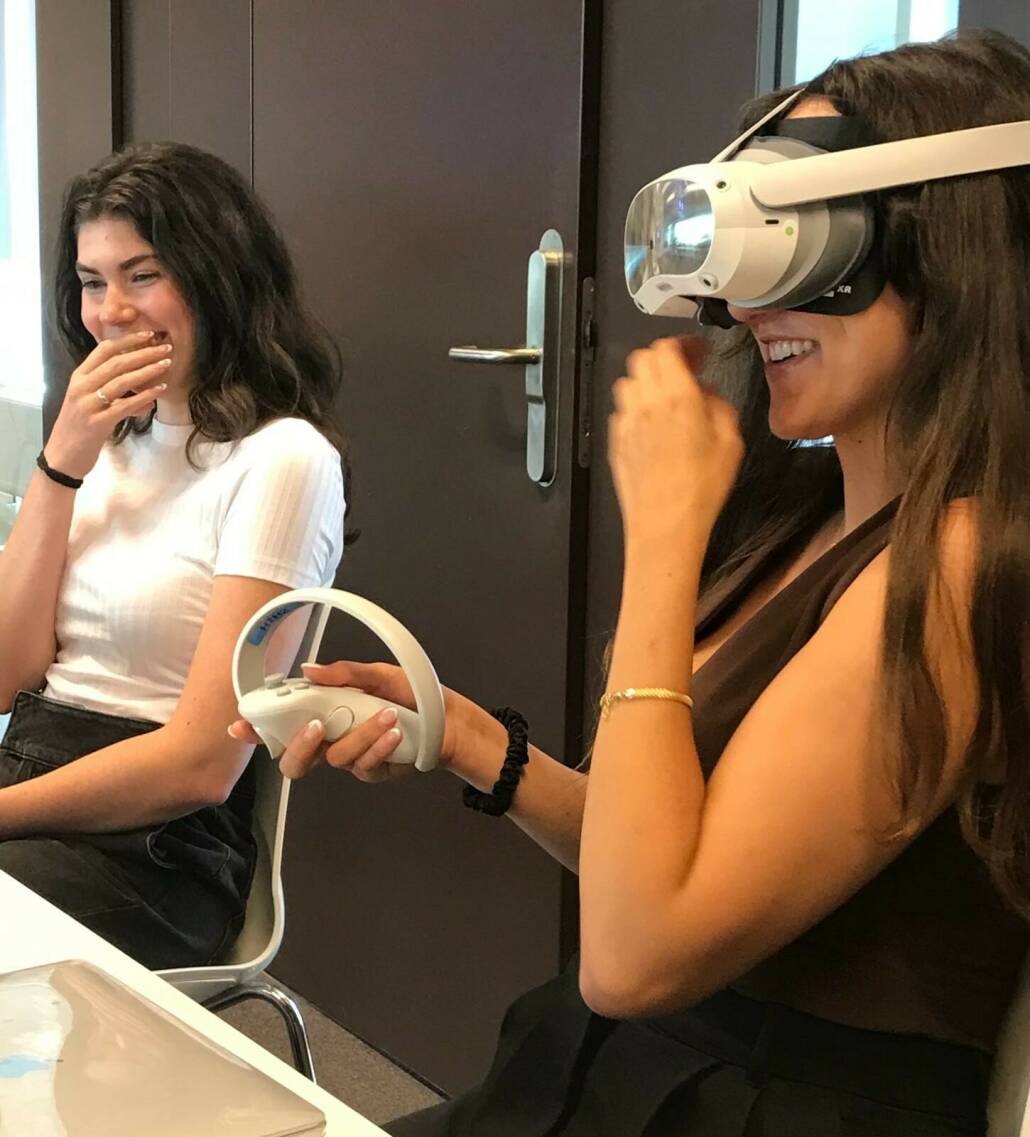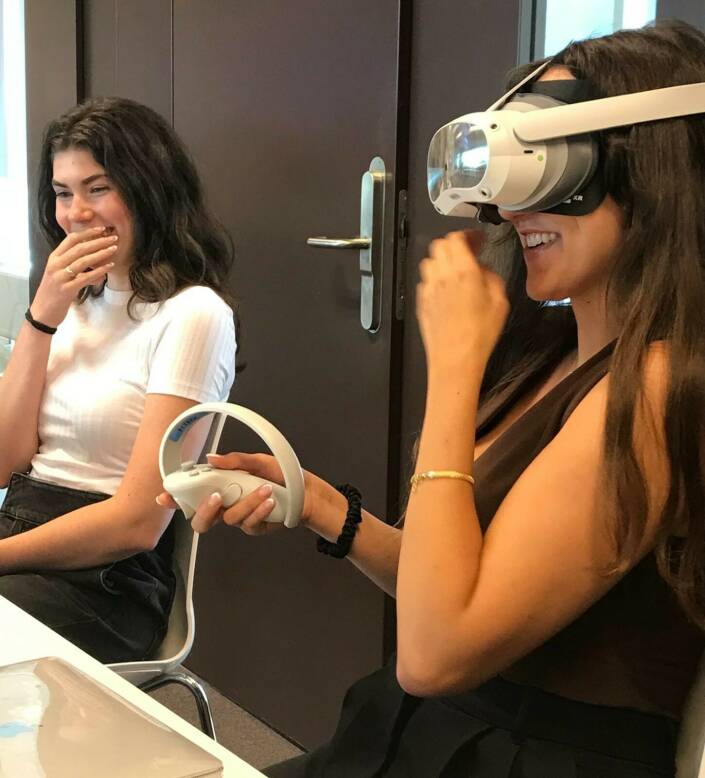Back to Contents
Future Intentions

Looking to what still is on the aspiration list to be incorporated in the MBA curriculum, the following initiatives can be outlined:
Four eyes (meaning external reviewers/colleagues to be involved) principle
Research methodologies
Collaboration with HTH Research Centre
Projects with other Hospitality Business Universities
1. We want to welcome external professionals; inviting them to give constructive feedback on the content, assessment and grading of courses and if possible, actively participate in the grading process of e.g. the thesis. There is quite some room for improvement when it comes to working together on course level among universities of applied sciences in The Netherlands. This could be a good and valuable way for the MBA to make more use of external expertise. During the COVID period (which impacted three MBA cohorts: 19-20, 20-21, 21-22), all energy was needed to constantly make the necessary changes to secure the continuity of the programme for the students. The ‘four eyes principle’, offering an independent external perspective, will be introduced in academic year 2024-2025.
2. Although the level of the quality of the research is safeguarded by implementing the Design Oriented Research course, there are areas in which we can improve the process of creating the most effective research approach to solve a problem or come up with solutions for a challenge. The use of qualitative interview outcomes combined with quantitative datasets is so common in the western way of doing research that hardly any student uses another research method than these two. Although, especially for problem solving challenges, the richness of possible even more applicable research methods and tools is significant. While we do express this and experiment with some of these methods during the year, when it comes to choosing research approach/methods, most students choose to go the safe way by doing qualitative interviews and/or a quantitative questionnaire. We have looked at other universities, both academic and applied, to see what possible solutions they have for this, and were impressed by what the Design Faculty of the University of Delft offered their students. We currently consider how we best could make use of their expertise and tools for the MBA programme. The first step is to reach out to them and to identify whether their research approaches and methods can also benefit, and if so to what extent, the HTH MBA students.

3. Under the motto ‘there is always room for improvement’, the MBA (in combination with the MA programme of Hotelschool the Hague) and the HTH Research Centre have opportunities to work more closely together on future projects and events. The MA students are currently linked to the Research Centre through their final thesis topic that in many cases is connected to the research lines of the Research Centre. The MBA, for instance, has an opportunity to show more co-ownership regarding the various symposia initiated and organised by the Research Centre. Also, students from other universities could be invited to participate in the programme of these symposia, so that the MBA students will take responsibility for the student part of the symposia.
4. The MBA programme is organised and executed in an international city, in an international business school, with a diversity of international students and the involvement of many international oriented lectures and guest lectures. What would make the programme even more international is to connect with other international oriented hospitality business schools. This may be done with institutes from the HTH network that together form the so-called Hospitality Schools of Distinction in a blended intensive course. A start could be to create a course together with a real-life project in which the students, lecturers and industry partners of both programmes work together on a specific challenge. Kick-off includes a physical get together at one of the campuses; teams are mixed; project management and additional educational activities are done through MS Teams, and the closing conference is again a physical event during which the various outcomes are presented and awarded. The aim is to have the first project or event in academic year 2025-2026.

Back to top
Back to Contents
Future Intentions

4. The MBA programme is organised and executed in an international city, in an international business school, with a diversity of international students and the involvement of many international oriented lectures and guest lectures. What would make the programme even more international is to connect with other international oriented hospitality business schools. This may be done with institutes from the HTH network that together form the so-called Hospitality Schools of Distinction in a blended intensive course. A start could be to create a course together with a real-life project in which the students, lecturers and industry partners of both programmes work together on a specific challenge. Kick-off includes a physical get together at one of the campuses; teams are mixed; project management and additional educational activities are done through MS Teams, and the closing conference is again a physical event during which the various outcomes are presented and awarded. The aim is to have the first project or event in academic year 2025-2026.
Projects with other Hospitality Business Universities
Collaboration with HTH Research Centre
Research methodologies
Four eyes (meaning external reviewers/colleagues to be involved) principle
Looking to what still is on the aspiration list to be incorporated in the MBA curriculum, the following initiatives can be outlined:
3. Under the motto ‘there is always room for improvement’, the MBA (in combination with the MA programme of Hotelschool the Hague) and the HTH Research Centre have opportunities to work more closely together on future projects and events. The MA students are currently linked to the Research Centre through their final thesis topic that in many cases is connected to the research lines of the Research Centre. The MBA, for instance, has an opportunity to show more co-ownership regarding the various symposia initiated and organised by the Research Centre. Also, students from other universities could be invited to participate in the programme of these symposia, so that the MBA students will take responsibility for the student part of the symposia.
1. We want to welcome external professionals; inviting them to give constructive feedback on the content, assessment and grading of courses and if possible, actively participate in the grading process of e.g. the thesis. There is quite some room for improvement when it comes to working together on course level among universities of applied sciences in The Netherlands. This could be a good and valuable way for the MBA to make more use of external expertise. During the COVID period (which impacted three MBA cohorts: 19-20, 20-21, 21-22), all energy was needed to constantly make the necessary changes to secure the continuity of the programme for the students. The ‘four eyes principle’, offering an independent external perspective, will be introduced in academic year 2024-2025.

2. Although the level of the quality of the research is safeguarded by implementing the Design Oriented Research course, there are areas in which we can improve the process of creating the most effective research approach to solve a problem or come up with solutions for a challenge. The use of qualitative interview outcomes combined with quantitative datasets is so common in the western way of doing research that hardly any student uses another research method than these two. Although, especially for problem solving challenges, the richness of possible even more applicable research methods and tools is significant. While we do express this and experiment with some of these methods during the year, when it comes to choosing research approach/methods, most students choose to go the safe way by doing qualitative interviews and/or a quantitative questionnaire. We have looked at other universities, both academic and applied, to see what possible solutions they have for this, and were impressed by what the Design Faculty of the University of Delft offered their students. We currently consider how we best could make use of their expertise and tools for the MBA programme. The first step is to reach out to them and to identify whether their research approaches and methods can also benefit, and if so to what extent, the HTH MBA students.

Back to top